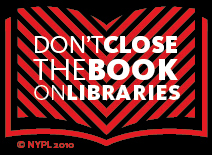I'm not saying that you'll be getting a nice 401(k) unless you happen to be JK Rowling or Stephen King, and I'm not saying you need a business degree to be a writer.
What you do need is common sense and a little bit of human decency. Writers have a tendency to be weird -we revel in it as our birthright as writers. We're socially inept, awkward and often dress inappropriately. Caffeine junkies, winos, addicts and surfers of 4chan make up our numbers. But then again, so do mothers, teenagers, teachers, doctors, stock brokers and any number of other types of people some writers would be tempted to look down on as "ordinary."
Writers are everywhere, and that means competition is fierce. That means if you're eccentric, great! But don't let that be your entire personality. You still have to be able to connect with the rest of us if you're going to sell us your writing successfully.
So much for human decency, then: act like grownups when you need to. Save your super-weird and/or inappropriate behavior for a place where it won't cost you your career. Protip: This is not anywhere public.
As for common sense, this has been said before and it will be said a billion times in the next 5 seconds, but I'm going to say it anyway: play to your strengths. And don't.
Find what you're good at and do it. Do it a lot. Do it badly sometimes, and learn from that. What you're good at should make your blood boil and tingle and make you jump out of your chair with excitement. It should make you passionate in both good and bad ways. If you're good at research, do research. Write about research. Blog about research. Teach other people how to be good at researching.
Find what you're not good at and do that too. Do it frequently, because it's going to teach you what your limits are, and then allow you to look those limits in the eyes, shove them down and take their lunch money. Doing something you're bad will teach you how to be good at it or at least how to be good at something. It will force you to change and grow and reevaluate yourself. Doing something you're bad at will also help you be better at the things you're good at.
Experimenting with your strengths and weaknesses will teach you what portions of your writing you'll be able to sell. I'm a college student -I am, right now, very good at writing opinion and fact-based pieces. So I do. I do a lot of that (here and elsewhere). I am learning a huge amount of information about writing, so I write about that. I am very good at writing BS, so I do. I write a lot more BS than pretty much anything else...but it's the BS I spew that's making me the most money right now. It might be boring, meaningless or uninteresting to me, but someone out there wants it, and they'll give me money in the process of getting it.
Writing requires marketing. For example, if I include a link to my newly published literary journal, Leaves & Flowers, someone might click on it and buy it -they might not, too, but they could. Additionally, if I include a link to an article about why Twilight is an awful series of books, someone might click on that, too.
Twitter, Facebook, blogs, word of mouth, friends and family, Myspace, StumbleUpon, Digg...all of these things are becoming indispensable tools for marketing writing (well, maybe not Myspace, that's kind of died). The point is, in an age where almost all of your readers will be connected to the internet very, very frequently...you need to be marketing on the internet.
This post has been fueled by caffeine, and therefore may not make much sense. However! let's recap.
- Don't act like bizarro-writer in situations where you'll lose writing opportunities. It's okay to be weird, but control yourself. Be weird in constructive ways.
- Write what you know.
- Write what you don't know.
- Kick your limits in their most tender parts and move past them.
- Market yourself as though your paycheck depends on it (because it does).
Seem simple? It kind of is...people just don't do it, for whatever reason.


No comments:
Post a Comment